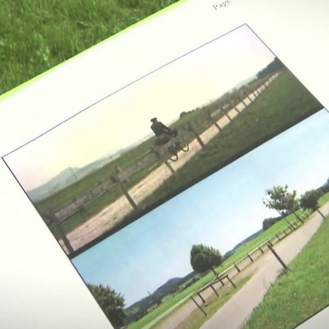P.I Carson Philips (John Travolta) accepts a missing persons case that returns him to his hometown. Reminding movie goers of Walking Tall, Philips observes that his old stomping ground is unlike how he remembers it, which leads into an overlapping conspiracy involving the recent murder of a star high school quarterback.
The Poison Rose gives its audience choices: would you rather see a crime noir that chews the scenery like a rottweiler eating an overdone steak, or would you like to see a more formulaic version that procedurally checks off its requirements like a line worker going through their daily duties? Both options are not necessarily ideal, but at least the filmmakers are thinking of the crowd they’re playing to – or, it appears so. The interest actually isn’t that genuine, and the film has been made without an audience in mind. This inevitably shapes this genre fodder from director George Gallo (Bigger).
Adapted from a novel of the same name written by the film’s screenwriter Richard Salvatore, this story is destined to be played as straightforward as possible (ala Homefront or Blackway). It can only be sunk by poor decisions, which the filmmakers and the actors do to an endless degree. But, at the same time, the production commits to their choices with confidence. I admire that – “strong and wrong” as the saying goes. The Poison Rose doesn’t find a way to escape its shabbier qualities with this courageous unity, but staying true to one vision gives the film some integrity.
The Poison Rose doesn’t involve the audience though, which is a problem. The film consists of long exchanges, intermittently split up by shoot-outs – it’s just not that much fun to watch. But if you’re in the market for a thriller that functions on a basic level, you could do worse.
**********
Do You Tweet? Follow These Tweeple:
Addison Wylie: @AddisonWylie





Leave a comment